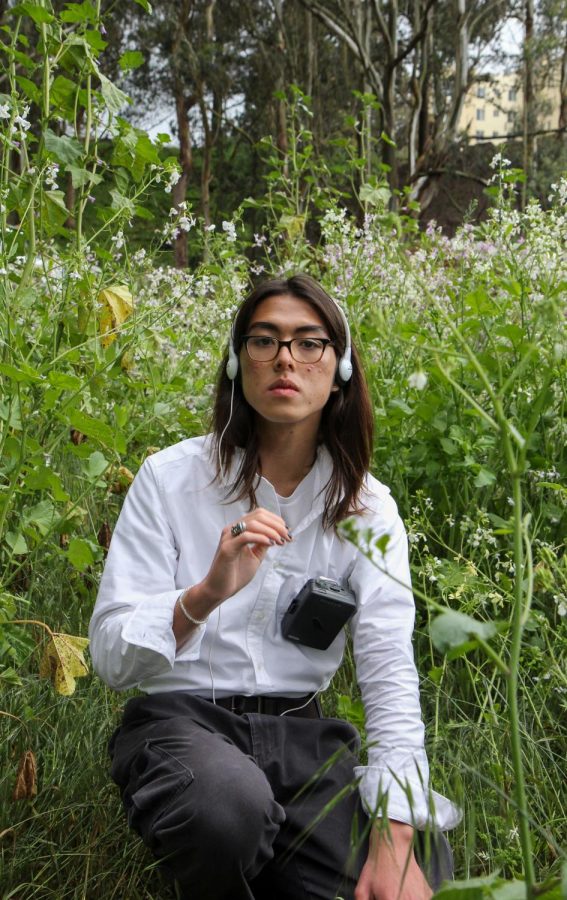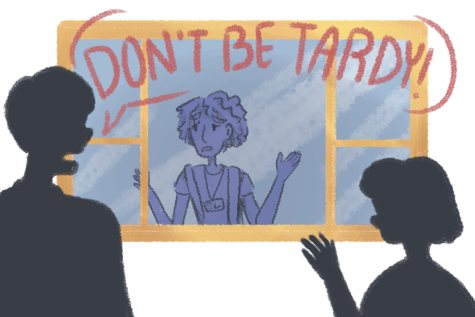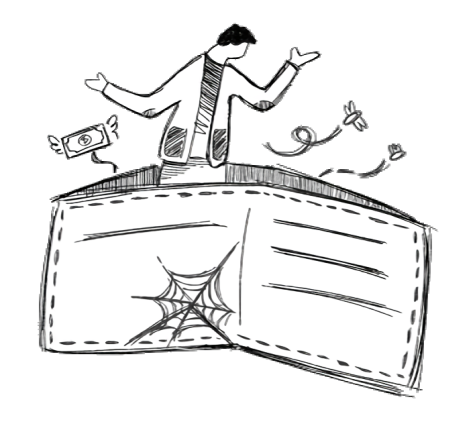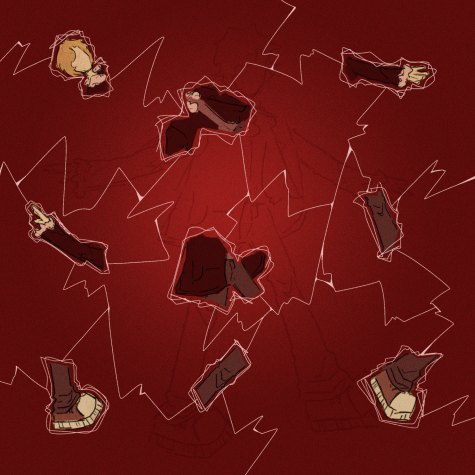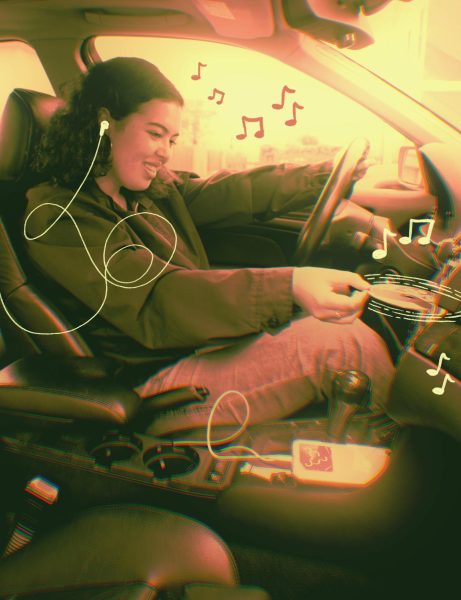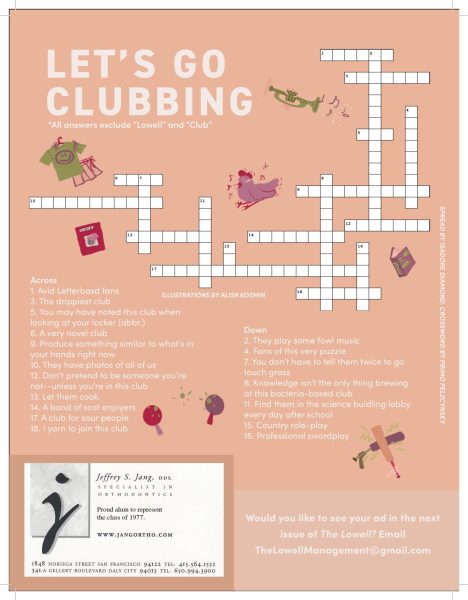Turning on the music
Finding oneself at Lowell is tough. Music helps.
The venue’s air is thick with sweat, vape smoke, and excitement as we all crowd eagerly around the front of the stage. Although I’ve been listening to Underscores for less than half a year, it feels as if my whole life has been leading up to this moment. And when Underscores jumps into view, the night instantly becomes the best one of my life. Hearing over a hundred other people scream along to the same songs I have depended on so desperately feels surreal in a way I have never felt before.
For the first time in a long time, I feel like myself.
Throughout my first semester at Lowell, the question of who I was was constantly stuck in the back of my mind, taunting me and weighing down on me like nothing else ever had. Everyone I saw seemed to know exactly who they were except for me, and without a sense of identity, my self esteem plummeted. When I discovered Underscores’ album “Fishmonger,” I was introduced to music scenes and communities that were unapologetic about themselves in ways I hadn’t seen before. Through the music I listened to and the people I met as a result, I was pushed to reevaluate what the word identity meant to me.
After returning to in-person learning after over a year of staring at identical blank Zoom profiles, the amount of character growth everyone seemed to have had was startling to me. Now, the people around me all had their hobbies, their talents, and their personalities — their gimmicks, if you will — but I felt like I had nothing. I felt like a shelll of a person, and the stress of transferring to Lowell as a freshman after a semester at Wallenberg just dropped my self-esteem lower. The inability to keep up with the classes my peers deemed easy made my already fragile sense of self-worth plummet, further alienating me from my classmates. My months at Lowell were beginning to blend together, and it was becoming harder and harder to look forward to the next day.
But when I turned my music on, everything seemed to be okay, at least for a little bit. The songs blasting through my phone pushed the questions out of my brain, the familiar sounds bringing me comfort in an environment I didn’t feel at home in. And when my self-esteem dropped, the songs I listened to were there for me, something that even I, a complete mess of a person, could find solace in. Soon, pieces of my own identity started to show, weaved in between someone else’s lyrics, a secret shared only between me and my headphones. It was a place to grow, free of my own judgment.
If these people were so happy in their own skin without fitting into one of the molds I had so closely linked with identity, then maybe I was thinking about identity entirely wrong.
Music had always been important to me, but one newly discovered album in particular, “Fishmonger” by Underscores, spoke to me in a way that none other had before. Although other albums had been significant to me, this album was the first to become truly intertwined with my own life, pulling me into new communities and redefining what identity meant to me. I was instantly hooked on its unique sound the moment I stumbled across it on Spotify. Every second of it exuded style, from the pitched-up angst of the faster songs to the soft nostalgia of the slower ones. But above everything, it was different; not in a gimmicky way or a “cool” way, but in a way that caused most people to turn up their noses the second the first song began to play. Underscores felt authentic in a way that I had never experienced before, like the artist was unapologetically showing her whole self to the world, regardless of whatever judgment would come her way. This strong sense of identity in the music called out to me, and soon, the album had become an essential part of my life.
And from Underscores, I discovered similar artists that also didn’t care about scaring away most of their potential listeners. The communities for these artists were some of the most accepting I’ve seen, built upon the same unapologetic sense of identity that the albums shared. Talking to other Underscores fans who were so confident in their own nonconformist selves, even if just through a screen, felt refreshing and inspirational. These people weren’t defined by a few flashy traits like the people I envied at Lowell that first semester, yet through their authenticity, the community members managed to have more of an identity than any of them. That authenticity was something that stuck with me. If these people were so happy in their own skin without fitting into one of the molds I had so closely linked with identity, then maybe I was thinking about identity entirely wrong.
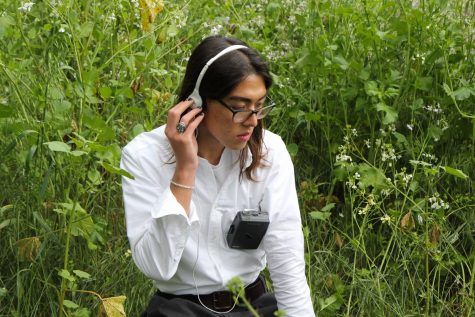
My obsession with Underscores led to it becoming the first of many concerts I attended during my freshman year. At school, my lack of identity made me feel invisible, a blank speck in a sea of vivid and colorful people. But within the walls of a concert venue, that invisibility was a blessing. If nobody was going to remember me after I left the doors of the building, I was free to step out of my comfort zone with no real consequence. Every time an opener began to play, any insecurities I had about my lack of identity faded away. There, it didn’t matter what hobbies I had, or what kind of a person I was. All that mattered was the music blaring in front of me and my ability to stand my ground in the mosh pit. And though these people were strangers, the music provided a connection that made talking come easily. Soon, a good chunk of my friends were people I met at concerts. Making friends so dramatically different from the people at school was a breath of fresh air, and it helped bridge the gap between the online communities that inspired me and my real life. The experimental and unapologetic nature of the music that caused us to meet let me know that I was in an environment where I was free to explore who I was in ways that would be embarrassing elsewhere. I felt like I was meeting people that I could try to be myself around, even if I didn’t really know what that meant yet.
The sense of unapologetic individualism woven between every lyric I listen to pushes me to explore parts of me that I’ve never really thought about.
Months later, after school had been let out and summer had set in, I laid on the couch at 2 a.m. relistening to “Fishmonger” for what must have been the thousandth time. And when my mind inevitably began to wander back to that question of who I was, it didn’t hold the same crushing weight it had months prior. Before I discovered albums like “Fishmonger,” I had thought of identity as a recognizable and easily discernible thing, usually based on a key trait or a gimmick, a one-sentence description of someone that set them apart from others. But every song, every lyric, and every person I had interacted with from the communities I found had shown a sense of authenticity and individualism that went so much deeper than a single trait. There were things that stood out about them, of course, but their identity was determined not by those fragments, but by the sum of every part of them.
I had thought that because people couldn’t describe me in a single sentence, that I didn’t have an identity, when in reality my identity is the product of every single thing I’ve said and done since the day I was born. I still have a lot to learn about myself, but I’m not a blank slate anymore, and the sense of unapologetic individualism woven between every lyric I listen to pushes me to explore parts of me that I’ve never really thought about. Now, with the music I’ve come to love lingering in my ears, thinking about my future no longer fills me with dread. Instead, it fills me with excitement.
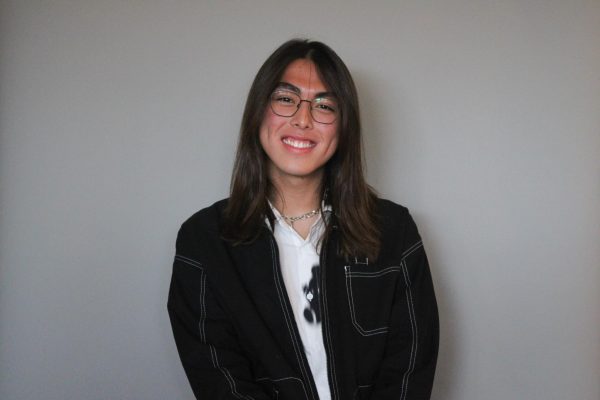
Thomas Harrison is a junior at Lowell. Outside of school, he loves to listen to music, go to concerts, and ignore his homework. His favorite artists include Underscores, Jane Remover, and Car Seat Headrest.
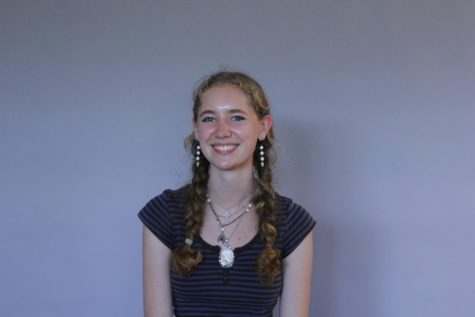
Marlena is a senior at Lowell. When she isn't at school she's probably at the lab, watching a movie, or sitting on the sidewalk listening to music (usually Björk).


